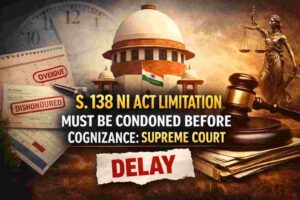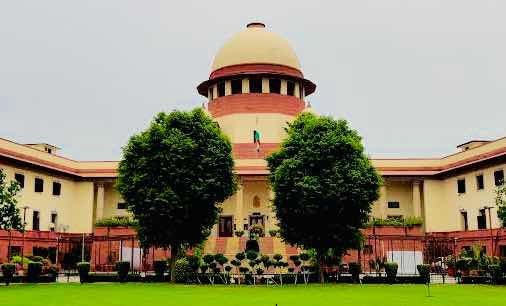- Prosecution sanction is mandatory for offenses by public servants under the PC Act.
- The rule applies to summoning additional accused under Section 319 CrPC.
- The Supreme Court upheld the High Court’s decision requiring sanction.
The Supreme Court has once again emphasized that courts cannot take cognizance of offenses committed by public servants under the Prevention of Corruption Act (PC Act) without proper prosecution sanction.
This rule applies even when summoning a public servant as an additional accused under Section 319 of the Code of Criminal Procedure (CrPC).
Key Ruling Details
In a recent judgment, the Court clarified that an accused cannot be summoned to face trial under Section 319 CrPC (now Section 358 of BNSS) without complying with Section 19 of the PC Act.
Justices Sudhanshu Dhulia and Prasanna B Varale emphasized, “Courts cannot take cognizance against any public servant for offenses under Sections 7, 11, 13, and 15 of the PC Act, even on an application under Section 319 of the CrPC, without first following the requirements of Section 19 of the PC Act.”
In this particular case, the trial court allowed a Section 319 CrPC application by the Public Prosecutor without considering the necessity of sanction. The High Court reversed this decision for not following the mandatory requirement of Section 19 of the PC Act.
State’s Argument and Supreme Court’s Rejection
The State argued before the Supreme Court that no sanction was needed as cognizance was taken under Section 319 of the CrPC.
However, Justice Dhulia’s judgment rejected this contention, stating the trial court should have insisted on prior sanction. The absence of sanction rendered the entire procedure flawed.
The Court referred to the Surinderjit Singh Mand v. State of Punjab case, highlighting that a sanction from the appropriate authority is mandatory, even when cognizance of an offense is taken under Section 319 CrPC against a public servant.
As the trial court failed to comply with Section 19 of the PC Act, the Supreme Court upheld the High Court’s decision and dismissed the appeal.
Key Takeaways
- Courts cannot take cognizance of offenses by public servants under the PC Act without a prosecution sanction.
- This rule applies even for summoning public servants as additional accused under Section 319 CrPC.
- Trial courts must follow the mandatory requirement of Section 19 of the PC Act.
Case Details
The State of Punjab vs. Partap Singh Verka
Citation: 2024 LiveLaw (SC) 461
Counsels for Appellants
- Mr. Vivek Jain, D.A.G. (NP)
- Ms. Nupur Kumar, AOR
- Mr. Abhinav Jain, Adv.
Counsels for Respondents
- Mr. R.P. Nagrath, Sr. Adv.
- Mr. Manuj Nagrath, Adv.
- Mr. Raktim Gogoi, Adv.
- Mr. Kartikeya Singh, AOR
- Mr. Shivam Sharma, Adv.
- Mr. S Vinod, Adv.















